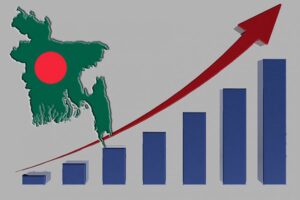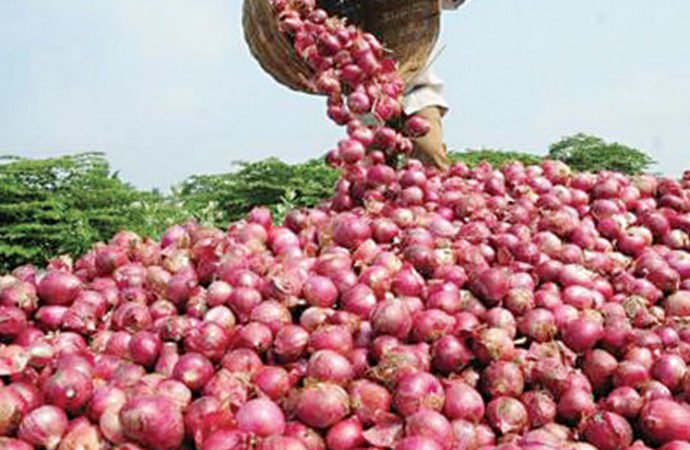 Political uncertainties driven by differences between two major political parties over holding the next general election could worsen the nation’s already-existing economic headwinds, economists warned.
Political uncertainties driven by differences between two major political parties over holding the next general election could worsen the nation’s already-existing economic headwinds, economists warned.
Tension is running high ahead of the election, due in January 2024, as the division between the ruling Awami League and the main opposition Bangladesh Nationalist Party has already resulted in protests, arrests, and violence.
The BNP is calling for prime minister Sheikh Hasina to step down, arguing that a free and fair election is only possible under a neutral government.
The AL is saying that the next election will be held under the existing constitutional provision keeping the government in office.
Both parties have staged many showdowns in recent times to drum up support in favour of their respective stances.
The number of such showdowns is likely to intensify in the coming weeks amid calls from local and international communities for both parties to reach a consensus through holding dialogue.
Economists observed that unlike during the previous elections in 2008, 2014, and 2018, the economic situation ahead of the next election had already been in a downturn due to high inflation, a shortage of dollars, and the high growth of non-performing loans in the banking sector.
‘None can dispel the risks of further deterioration of the major economic indicators in the absence of a congenial political atmosphere,’ said former World Bank Dhaka office lead economist Zahid Hossain.
He said that local and international reactions to political developments and geopolitics were linked directly to the economy.
The downgrade of Bangladesh’s rating by international credit rating agencies has already hit the confidence of local businesses hard, Zahid Hossain said.
In May, the UD Moody’s downgraded the county’s credit ratings, citing heightened external vulnerability and liquidity risks amid institutional weaknesses.
Bangladesh’s long-term rating outlook was downgraded from stable to negative by global rating agency S&P in July.
In September, another international credit rating agency, Fitch, also gave a negative outlook about the country’s rating.
In the same month, the European Parliament expressed concern over the human rights situation in Bangladesh and called on the Bangladesh government to ensure all the conditions for free, fair, and participatory elections.
The United States has already started implementing visa restrictions on anyone undermining the process of free and fair elections in Bangladesh.
The recent spell of war in Gaza on the back of conflicts in Ukraine also hinted at further volatility in geopolitics.
Almost all the factors give bad signals for the country’s economy, said Bangladesh Institute of Development Studies director general Mustafa K Mujeri.
Mujeri, also a former Bangladesh Bank chief economist, said that the economy required quick reforms in the areas of exchange rate and interest rate to tackle the shortage of dollars as well as inflation.
Exchange rate volatility has caused the devaluation of the local currency taka against the US dollar by 26.1 per cent in the financial year 2022–23, the highest in 46 years.
The average inflation in the financial year 2022–23 was recorded at a 12-year high of 9.02 per cent.
A reform programme has been taken under the $4.7 billion loan programme from the International Monetary Fund since the past year.
But the first IMF review of the loan programme concluded on October 19 with clear hints for a slowdown in reform measures until the next general election.
Former Dhaka University economic department chairman MM Akash hoped that the economic outlook would not deteriorate further if the government was able to increase the inflow of remittances through official channels.
The government has recently asked banks to provide an extra 2.5 per cent incentive against remittances to discourage the inflow of remittances through unofficial channels, known as hundi.
The inflow in September hit a 41-month low at $1.34 billion.
Remittances are the second biggest source of foreign currency in Bangladesh after export income.
Export income in September was at a five-month low of $4.31 billion.
Akash feared that the country’s economy might not sustain any restrictions by the US on exports.
The US market is the single largest destination for Bangladesh exports, accounting for almost 17 per cent of annual income.
Besides, the US enjoys over 17 per cent votes on the IMF board of directors, whose positive approval is crucial for the release of the second tranche of $681 million to Bangladesh in December.
The country needed the second tranche badly, as the country’s forex reserves dropped to $20 billion in the current month from $48 billion in August 2021, despite restrictions on imports by the Bangladesh Bank.
New Age









